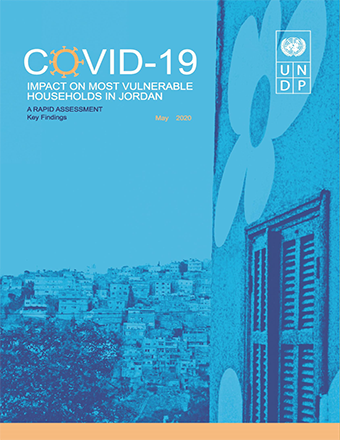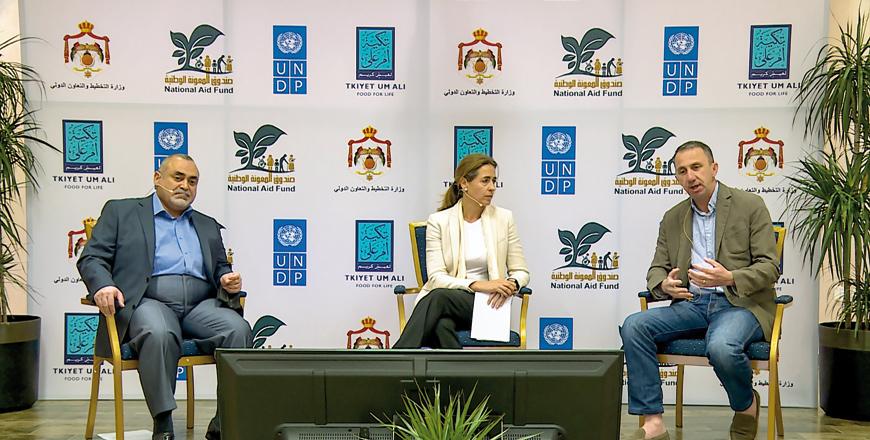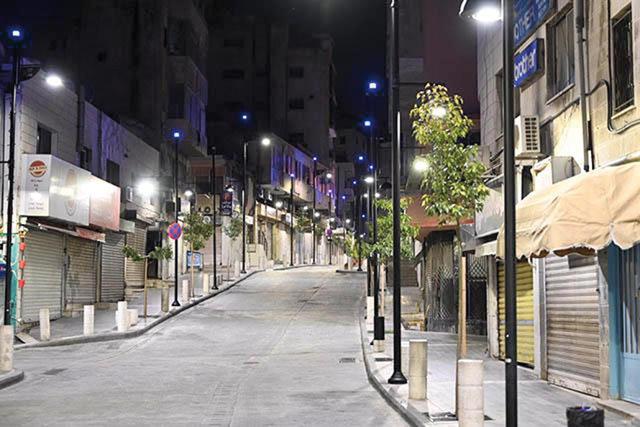You are here
68% of vulnerable Jordanian households report significant impact on livelihoods as a result of COVID-19
By JT - May 21,2020 - Last updated at May 21,2020

Photo courtesy of UNDP
AMMAN — COVID-19 and Jordan’s lockdown measures have had “severe implications” on people’s livelihoods across the Kingdom, according to two recently released assessments conducted by the United Nations Development Programme (UNDP).
In a statement made available to The Jordan Times on Thursday, the UNDP said that the rapid impact assessments were conducted during the lockdown from late April to early May, covering 12,084 citizens from across Jordan, along with another assessment of 1,648 households focusing on some of the most vulnerable Jordanian households.
While Jordan is curbing the spread of COVID-19 and trust in government response measures is “high”, the impact of the crisis on households across Jordan has been “significant”, the UNDP said.
More than 85 per cent of the most vulnerable households are reported to have faced difficulties in meeting even basic needs like food and rent during the first few weeks of the lockdown, the survey found. Even amongst the general population, almost three-quarters reported similar difficulties.
The statement added that only around 7 per cent of households across Jordan reported that they were working as before, with half indicating that they have lost their livelihoods. The proportion was found to be even higher among the most vulnerable, at 68 per cent of households.
Incomes were already low prior to the crisis, so few have the financial resources to cope with the loss of income, the statement said. Amongst the most vulnerable households, almost two-thirds and amongst other households participating in the survey, 66 per cent reported having less than one week of financial resources to draw on.
This highlights the “very low levels of savings of many households and their limited resilience”, the UNDP said.
Despite the government’s efforts to control food prices, about half of all respondents said that they feel that food prices have “risen significantly”, and many reported challenges in accessing basic healthcare, the statement noted.
Globally, against the backdrop of the rapidly spreading COVID-19 pandemic, the world economy is projected to shrink by 3.2 per cent in 2020, racking up some $8.5 trillion in overall losses and wiping out nearly four years of output gains, according to a mid-year economic analysis by the United Nations.
Meanwhile, global human development — which can be measured as a combination of the world’s education, health and living standards — could decline this year for the first time since the concept was introduced in 1990, the UNDP warned this week.
The combined impact of these shocks could signify the largest reversal in human development on record, the statement said.
In Jordan, as the economy opens up and the Kingdom witnesses “a staggered approach” to easing lockdown measures, some challenges are abating. However, the majority of respondents expressed concerns that the COVID-19 crisis will have a long-term impact on their livelihoods, according to the statement.
More than three-quarters of people participating in the survey fear the long-term impact of the crisis on income levels and livelihoods lasting beyond the lockdown, the UNDP said.
In the statement, UNDP Resident Representative Sara Ferrer Olivella emphasised that the survey provides “important insights for policymakers and development partners as they are developing response measures”.
"We need to understand who is affected, where and in what way so that assistance can reach the most vulnerable and furthest behind,” she said, adding that it is “particularly concerning” that such a large percentage of people from across Jordan “have been affected so severely” by the socio-economic impact of COVID-19.
“It shows that not only the most vulnerable have been affected, but many others,” she said.
Related Articles
AMMAN — A new study released by UNICEF has highlighted the socio-economic challenges faced by vulnerable children, young people and their pa
AMMAN — Around 85 per cent of Jordanian vulnerable households were heavily impacted by the COVID-19 pandemic last year, a local study reveal
AMMAN — The World Bank (WB) has approved additional financing of $290 million for the Emergency Cash Transfer COVID-19 Response Project to p














